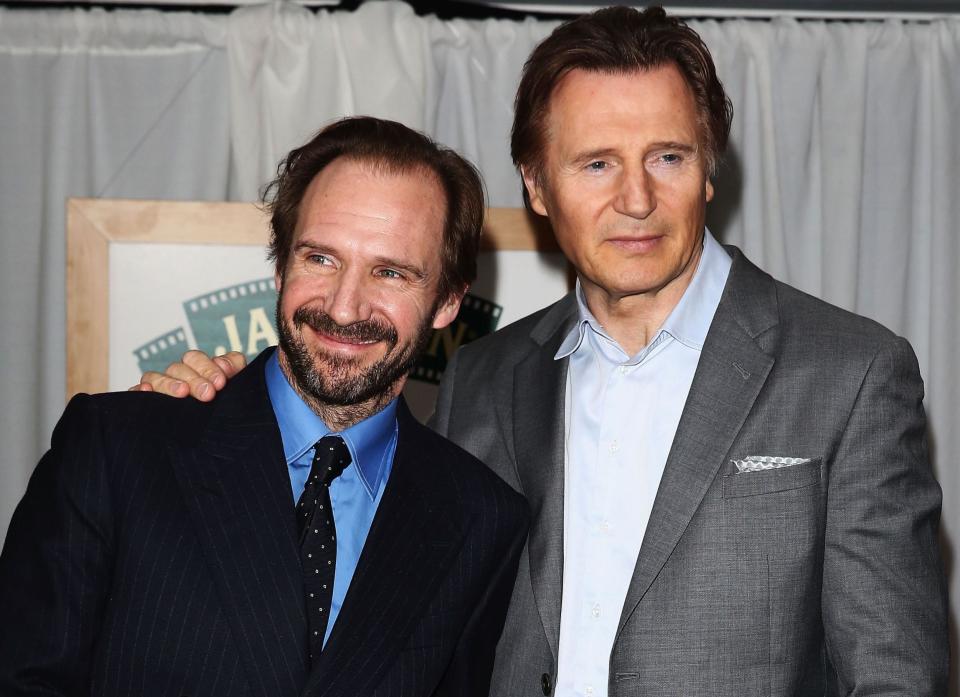Ralph Fiennes speaks out over Liam Neeson racism controversy
Ralph Fiennes has offered his view on controversial comments made by Liam Neeson during an interview with The Independent.
The Taken star was widely condemned for remarks in which he admitted to walking the streets with a cosh looking for “some black bastard” to kill after someone close to him was raped.
Among those to criticise his remarks was Neeson’s Widows director Steve McQueen, who said he was “disturbed and upset” at what the actor referred to as the experience upon which he based the motivation for the many revenge films in which he has starred.
In response to the controversy, the premiere for Neeson’s recent film Cold Pursuit was cancelled. The movie also suffered at the box office, with Neeson experiencing his worst opening weekend in the US in almost a decade.
Fiennes, who starred with Neeson in Schindler’s List, first came to the actor’s defence earlier this month in an interview with RTE, where he insisted that Neeson was “not a racist”.
“Liam confessed to some very ugly and angry emotions, which he himself acknowledged were an appalling thing, but they were something he experienced many years ago. He made a confession in an interview,” Fiennes said.
“I know him to be one of the most loyal and honourable and good men there are, and certainly not a racist.”
Speaking to The Times this weekend, Fiennes elaborated on his thoughts about the reaction to Neeson’s interview, and repeated his belief that he was attempting an honest confession.
“I think there’s a kind of political correctness which has its strength, but is in danger of becoming its own sort of totalitarianism,” he said.
Fiennes’ latest film The White Crow marks his third stint as a director.
Based on Russian ballet dancer Rudolf Nureyev’s sensational escape to the west in the early Sixties, aged 23, the film has received mixed reviews from critics, with praise reserved for Fiennes’ direction and performance as dance teacher Alexander Pushkin.
Reviewing for The Independent, critic Geoffrey Macnab called it Fiennes’ “best film yet” as a director and commented on the authentic feel of the dance scenes.

 Yahoo News
Yahoo News 

